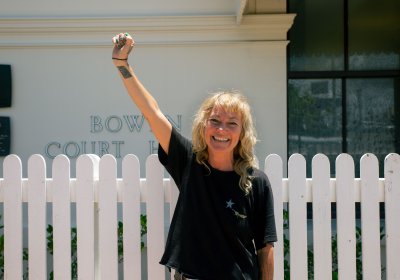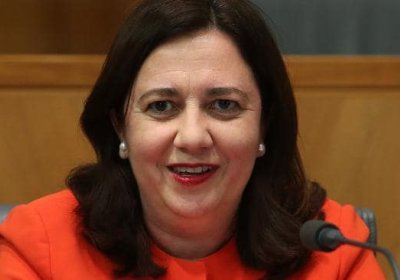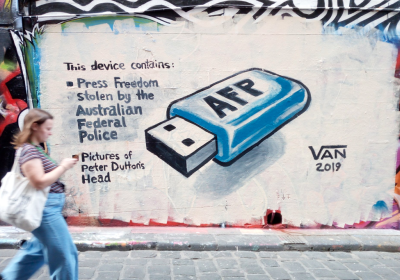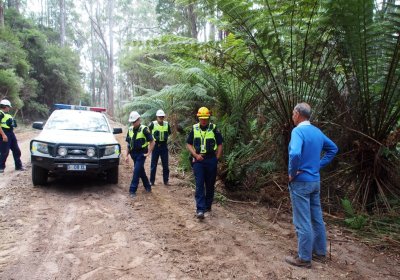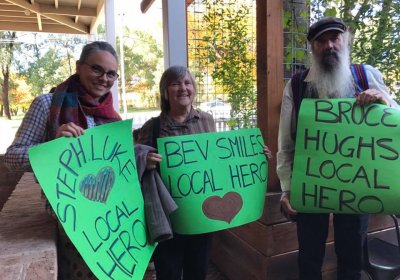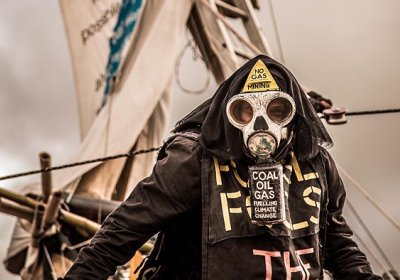The NSW Coalition, with the support of NSW Labor and the conservative crossbench, have enacted laws that effectively ban direct actions. Abigail Boyd describes the anti-democratic push to pass these draconian new laws.
Anti-protest laws
A new report by Greenpeace, Global Warning: the threat to climate defenders in Australia, has identified an alarming escalation in repression against climate activists. Fred Fuentes reports.
Matt Haubrick reports on a successful community campaign against another government attempt to introduce a draconian anti-protest law.
Peter Dutton pretends not to know his right from his left. But, as Peter Boyle argues, facts have never been his strong point.
The science has long been in on the climate emergency, yet despite this governments have signed off on Adani’s coalmine in Central Queensland, with five or six more set to follow if it goes ahead.
This immediate threat has led Queensland to become a flashpoint for climate activism in recent months.
The Queensland Labor government’s decision to enact new anti-protest laws to protect new coal and gas projects is a reminder of who the government believes it is in power to serve, writes Margaret Gleeson.
On April 19, Alice Wicks locked on to a half-ton barrel, blocking all coal trains heading to the Port of Brisbane for 5 hours.
“I took this action because I have exhausted all other avenues for demanding action on the climate crisis. The permafrost has melted 70 years ahead of scientist's predictions. We need to act now”, Wicks said on July 26.
The recent intimidatory police raids on the ABC and a journalist’s home for publicising matters of community concern are a wake-up call that press freedoms can no longer be taken for granted, writes Bevan Ramsden.
The High Court ruled on October 18 by a 6:1 majority in favour of Bob Brown and Jessica Hoyt’s challenge to the validity of a Tasmanian anti-protest law. The decision is a significant win for forestry and public-interest activists, although it does not go as far as some may have hoped.
The court found the Tasmanian law was unbalanced and unreasonable. However, it affirmed the right of parliaments to target protesters who interfere with business operations.
Three protesters charged under a new section of the NSW Crimes Act have pleaded not guilty at a preliminary hearing in Mudgee on May 17.
The “Wollar Three” are challenging the draconian new law aimed at criminalising those who protest at coal and gas mine sites. If convicted they could face a maximum penalty of seven years’ jail.
Artist and activist Benny Zable has been wearing a mask at protests throughout Australia for more than 30 years.
His distinctive skull-like gas mask and painted death-bringer costume, atop large black radioactive drums has become an icon of peace, anti-nuclear and environmental movements throughout the country. He is a performance artist who uses his art form to depict a chilling prophesy of nuclear and environmental catastrophe.
Former Greens leader Bob Brown and Hobart nurse Jessica Hoyt began a landmark High Court challenge to Tasmania's draconian anti-protest laws on May 2. The 2014 legislation allows police to stop protests before they even begin on business premises and access areas.
The two were arrested for peaceably protesting against the logging of the Lapoinya State Forest near Burnie on Tasmania’s north-west coast in January last year. Police dropped the charges against Brown and Hoyt after they began their High Court challenge.
- Previous page
- Page 4
- Next page

